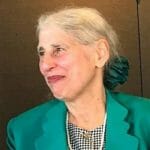Joseph: What the Left Doesn't Want You to Know About the UN and 'Abortion Rights'
In a March 2 letter, an intimidating number of pro-abortion groups and professionals issued an “urgent appeal” to the United Nations.
One of their demands? That UN bureaucrats make an official visit to the U.S. to berate it for the “violation of abortion rights” in certain states and for the recent overturning of Roe v. Wade.
They allege that “abortion rights” were established in the original international human rights instruments to which the U.S. is a party. But they are wrong.
Original universal agreement
The U.S. remains a party to the universal human rights instruments that formally recognized the right to legal protection for every child “before as well as after birth.” (See historical context and analysis of the texts in “Human Rights and the Unborn Child.”)
The U.S. solemnly agreed to honor the founding principles set out in the Universal Declaration of Human Rights (1948). Each principle was debated thoroughly by international delegations including a formidable contingent of very intelligent, articulate U.S. delegates.
In the Declaration on the Rights of the Child (1959), the U.S. went on to reach a formal agreement that
“the child, by reason of his physical and mental immaturity, needs special safeguards and care, including appropriate legal protection, before as well as after birth. … The need for such special safeguards has been … recognized in the Universal Declaration of Human Rights.”
The U.S., influential in drafting this wording, adopted the Declaration in good faith.
In the drafting of the International Covenant on Civil and Political Rights article on the right to life, the only recorded attempt to introduce abortion as an exception to the right to life occurred in the working group’s second session (1947). Put to a vote in the Commission on Human Rights, it was, with U.S. leadership, resoundingly defeated.
The wording of these principles was negotiated in good faith, painstakingly drafted to be consistent with the U.S. Constitution, and freely agreed to and adopted by successive U.S. delegations with the full authority of the U.S. government legitimately elected by the people.
First principles
In the 1947-1948 negotiations of the Universal Declaration, one of the first principles agreed upon by the U.S. and other countries was that the “innocent unborn child” is legally protected.
The ICCPR drafting history records repeatedly and irrevocably that protection of the law is to be “extended to all unborn children.” (See the fifth, sixth, eighth and twelfth sessions of the Commission on Human Rights.) At all these sessions, the draft history refers specifically to the intention to save the life of an unborn child in recognition of the principle that legal protection belongs to every human being.
The U.S. agreed that neither governments nor individuals may derogate from the protection of the inalienable right to life that inheres in every human being. Any limitation of or exception to a non-derogable right is inadmissible.
Everyone is “a person before the law.”
One of the chief drafters, René Cassin, articulated the principle that “everyone has the right to recognition everywhere as a person before the law.” He urged its incorporation as Article 6 of the Universal Declaration.
An eminent French jurist and Zionist, Cassin himself had suffered the loss of 39 family members in Nazi concentration camps. He convinced his colleagues in the drafting committee that they must start with “the fundamental principle of the unity of the human race” precisely because Hitler had started his killing programs “by asserting the inequality” of selected human beings deemed socially unwanted.
Providentially, 130 years before, the U.S. Supreme Court had laid down that very same principle of inclusion: “The words ‘any person or persons’ … comprehend every human being … the whole human race” [United States v. Palmer (1818)].
We must accept that we do not have ownership and killing rights over our unborn children.
The present-day conspiracy to deny juridical personality to unborn children on the strength of an extreme pro-abortion ideology that presents victims of abortion as rightless nobodies — as the mere property of “the woman” — is to be exposed and denounced.
It should be seen in that shame-filled tradition of treating slaves as non-persons, and thus as the mere property of their owners.
Our newest and liveliest human persons, our littlest daughters and sons, already present in their mothers’ wombs, are “our Posterity” to be protected equally with ourselves, according to the U.S. Constitution.
Truth and Accuracy
We are committed to truth and accuracy in all of our journalism. Read our editorial standards.
Advertise with The Western Journal and reach millions of highly engaged readers, while supporting our work. Advertise Today.












